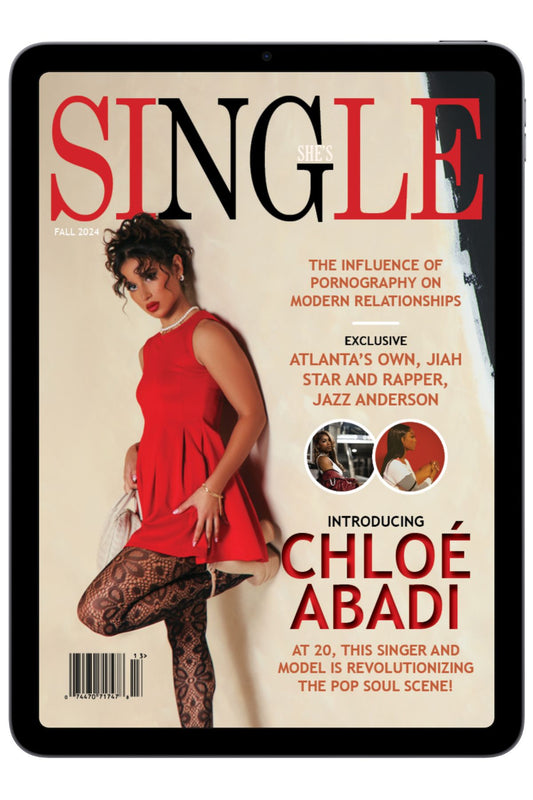What Is Covetous Gaze on Social Media?

As an avid social media user, I couldn’t help but notice something strange happening online: “Oh my gosh, where did you get your dresser?” or “Drop the lip combo” and most recently, “Is that a new table? I see you, honey.” Why are so many users seemingly incapable of simply enjoying content without prying into the life of a content creator? Some users have gone as far as to look up Nara Smith’s outfits or inquire about the marital status of Jackie Aina, which resulted in her blocking many fans and spectators. Is this wrong, and is there a boundary being crossed?
What is a covetous gaze? According to Dictionary.com, it is marked by an inordinate desire for wealth or possessions, or for another’s possessions. While it may seem innocent enough, it is a clear violation of the privacy of the person sharing their content. This content could be anything from a message about mental health to a woman building herself a new closet, and almost always, there will be someone in the comments section asking about information that is essentially off-topic and none of their business. But why does this happen, and is there an upside to it?

MARKETING
Amelia Taylor of Branndet Marketing Group shares, “It’s our job to find the best marketing strategies for our clients, and one of the things we pride ourselves on is working with clients who understand that building a business consists of delayed gratification. With this understanding comes a strategy that we’ve recently implemented, which is doing numbers for our clients. It involves taking the covetous gaze online and using it to our benefit. No promotion, no selling points—just authentic content, and we let the viewers do the work from there.”
Have you ever purchased something and had such a good experience that you had to share the good news with someone else? That’s called word-of-mouth marketing. “None of our clients pay for advertisements via platforms such as Google and Facebook; it’s all a waste of money and not worth it in the long run. The best form of advertising is word of mouth.”
When we watch shows such as Succession on HBO and dissect the characters’ clothing, it’s a way to promote both the show and those clothing brands. Seldom will we see advertisements for those companies, such as Brunello Cucinelli, LUEQ, Oscar De La Renta, or Chanel. Aside from fragrance commercials, which are done by department stores, the brands themselves are not advertising their products.
They rely on the viewers to do the advertising for them. So, while it may feel uncomfortable for a content creator to receive all of these questions about their lip combo and furniture, they can—and should—monetize it with brands that are willing to play the long game. Perhaps if viewers knew this was a tactic for the creator to earn revenue, they would be less inclined to question their aesthetics—sad, but true.

COVETOUS GAZE
Covetousness can destroy your life because, along with it, comes jealousy, envy, oppression, and sometimes violence. When we see something that someone else has and we are envious of them because of it, this may lead to unhappiness within ourselves and a feeling of falling behind or being unproductive in our day-to-day lives.
“For the love of money is a root of all kinds of evil, for which some have strayed from the faith in their greediness, and pierced themselves through with many sorrows. But you, O man of God, flee these things and pursue righteousness, godliness, faith, love, patience, and gentleness.” 1 Timothy 6 NKJV. Can you see someone displaying something online and refrain from asking them where they got it from or what brand they are wearing? If so, then you have the right idea when it comes to social media consumption.
Covetousness is a strange concept and should be called out because, with all the money spent by brands on advertising, it’s a wonder how many companies are losing revenue. If you happen to want a lip liner, cashmere sweater, or even a new dining table, a simple Google search will yield you many results. But does this mean that advertising is dead and covetous marketing could emerge? According to Taylor, the answer is yes.
“We first tested this theory with our client, LUEQ, and saw amazing results! It started with one intern taking an item home and posting herself wearing it online while doing her makeup. The comments did as we expected; everyone began to inquire about her top. She begrudgingly responded to as many comments as she could by stating where the item came from. Our client saw a 30% increase in sales that day—direct to their website.”
Does this mean it will be the same for every brand? Probably not. But another successful example of this was during Beyoncé’s Renaissance Tour when fans began to inquire about her setting spray because, during her performance in the rain, her makeup did not move. Her makeup artist then revealed it to be the ‘On Til Dawn Mattifying Waterproof Setting Spray Full.’

Patrick Starrr, the owner, took to his social media to express his deepest gratitude to Beyoncé and her team for supporting his brand. Not only that, but the product was sold out for months! This is something that no Google or Facebook ad could ever accomplish.
While the covetous gaze can be annoying and leave content creators feeling disappointed that their content is being overshadowed by nosy spectators, it can be an upside for brands if correctly used and monetized. If you need more information or want to grow your business, contact Branndet Marketing Group today.
by Harley Miller & Amelia Taylor, Branndet Marketing Group








